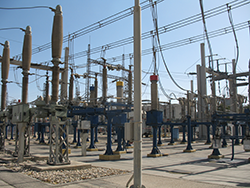Summary: In a earlier blogpost I explored the idea that storage is fungible but I’ve also heard fungibility mentioned recently in relation to cloud computing as a whole. If cloud computing is becoming a commodity (which is another argument) why shouldn’t it be traded like any other commodity, with a marketplace, brokers, futures trading etc? Are we going to see cloud compute traded much like gas or electricity?
Strategic Blue’s presentation on ‘Cloud brokers’ at CloudCamp London back in October 2012 centered around this exact idea and generated plenty of animated discussion on the night. Some felt that this was a pipe dream whereas others felt it was inevitable. My wife’s a commodity trader so after returning home I had various discussions with her trying to understand the concepts of commodity trading. It’s harder than I thought! The more technically minded of us immediately started thinking about issues like compatibility, interoperability, and service maturity but apparently (and somewhat surprisingly) these are all irrelevant when it comes to a true marketplace. It’s not the current IT providers that will define and run the cloud computing markets which is an idea that takes a bit of getting used to!
 In a fascinating article, What’s required for a utility market to develop?, Jack Clark identified & scored the various criteria which need to be satisfied before cloud computing can be considered a utility. He gave it 7/10 (which is probably higher than I would have expected) but two of the requirements in particular struck a chord with me;
In a fascinating article, What’s required for a utility market to develop?, Jack Clark identified & scored the various criteria which need to be satisfied before cloud computing can be considered a utility. He gave it 7/10 (which is probably higher than I would have expected) but two of the requirements in particular struck a chord with me;
- a transmission and distribution capability – represented in the cloud by datacentres and networks
- a market mechanism – typically an exchange (like the FTSE or NASDAQ)
Let’s investigate these two criteria.
Continue reading Is cloud computing a fungible commodity?
